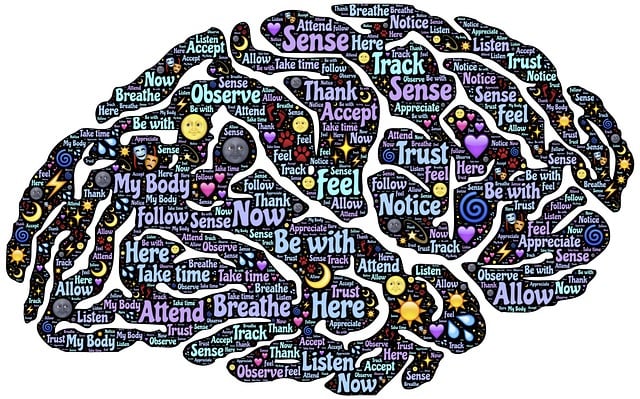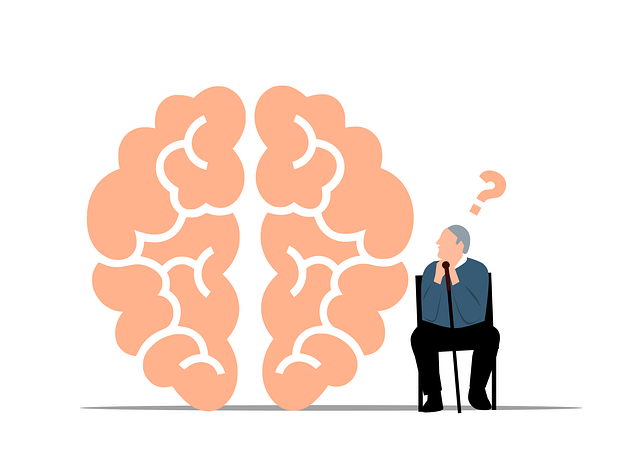Broomfield Geriatrics Therapy revolutionizes senior care by focusing on emotional intelligence (EQ) as a core element, aiming to enhance mental wellness and patient outcomes. Through journaling, mindfulness, and educational workshops, this approach fosters self-awareness, empathy, and cultural competency among caregivers, enabling personalized support for seniors' emotional complexities. By integrating EQ techniques, Broomfield Geriatrics Therapy mitigates stress, anxiety, and negative emotions, promoting resilience and improving overall well-being for both patients and caregivers.
Emotional intelligence (EQ) is a key component of overall well-being, especially for seniors and their caregivers. This article explores the power of EQ through the lens of the Broomfield Geriatrics Therapy Approach, highlighting its significance in navigating later life stages. We delve into strategies to identify and manage emotions, practice empathy through active listening, and enhance self-awareness – all essential components of the Broomfield Geriatrics therapy model. By understanding and cultivating emotional intelligence, seniors and caregivers can foster deeper connections and improve quality of life.
- Understanding Emotional Intelligence: The Broomfield Geriatrics Therapy Approach
- Why Emotional Intelligence Matters for Seniors and Their Caregivers
- Identifying and Managing Emotions: Tools from Broomfield Geriatrics
- Practicing Empathy: Building Connections Through Listening
- Enhancing Self-Awareness: Strategies for Personal Growth in Later Years
Understanding Emotional Intelligence: The Broomfield Geriatrics Therapy Approach

Emotional intelligence (EI) is a multifaceted concept that has gained significant attention in recent years, especially within the healthcare sector. The Broomfield Geriatrics Therapy Approach offers a unique perspective on fostering EI, emphasizing its role in enhancing patient care and overall mental wellness. This therapy model recognizes that understanding and managing emotions are essential components of effective geriatric care.
The approach encourages both healthcare providers and patients to engage in self-awareness exercises, such as journaling and mindful reflection, to navigate the complexities of aging and related emotional challenges. By promoting cultural competency training for healthcare providers, the Broomfield Geriatrics Therapy Approach ensures that caregivers can offer tailored guidance, enhancing the patient’s ability to process their emotions healthily. This holistic strategy not only improves communication between patients and healthcare providers but also contributes to better mental wellness outcomes in older adults.
Why Emotional Intelligence Matters for Seniors and Their Caregivers

Emotional intelligence (EQ) plays a pivotal role in enhancing the overall well-being and satisfaction of seniors and their caregivers. For an aging population, managing emotions effectively is crucial as physical health challenges often arise with age. Broomfield Geriatrics Therapy recognizes this and emphasizes EQ development as a key component of holistic care. By understanding and regulating emotions, seniors can maintain a sense of independence and dignity, which is essential for their mental resilience during the later years.
Caregivers also benefit immensely from cultivating emotional intelligence. They often juggle multiple responsibilities, dealing with stress and burnout risks. Public Awareness Campaigns Development and Community Outreach Program Implementation initiatives can play a significant role in educating caregivers on stress management techniques. These workshops equip them with valuable tools to handle their own emotions while providing better support to the seniors they care for. Such programs foster an environment where open discussions about mental health are encouraged, breaking down barriers and promoting early intervention.
Identifying and Managing Emotions: Tools from Broomfield Geriatrics

Identifying and managing emotions is a cornerstone of emotional intelligence development. Broomfield Geriatrics Therapy offers valuable tools to help individuals recognize their feelings and respond to them in healthy, constructive ways. Their approach emphasizes the importance of emotional regulation, teaching techniques that can mitigate stress, anxiety, and other negative emotions. By fostering positive thinking and effective coping mechanisms, these strategies empower individuals to navigate challenging situations with greater resilience.
For mental health professionals, incorporating Broomfield Geriatrics Therapy methods into their practice can significantly enhance risk management planning. By equipping clients with robust emotional intelligence tools, therapists can support better mental well-being outcomes, reduce the risk of escalation in therapeutic settings, and ultimately contribute to a more positive and sustainable quality of life for their patients.
Practicing Empathy: Building Connections Through Listening

Empathy is a cornerstone of emotional intelligence and a powerful tool in building strong connections with others. At Broomfield Geriatrics Therapy, we emphasize the importance of listening with an open mind and heart to foster empathy. By truly hearing someone’s story and understanding their feelings, we create a safe space where individuals feel seen and valued. This act of listening deeply goes beyond passive hearing; it involves recognizing and acknowledging the emotions expressed by others.
Practicing empathy enhances our relationships, whether personal or professional. It allows us to connect on a deeper level, fostering an environment of trust and understanding. Through active listening, we can apply the Mind Over Matter Principles, where self-care practices are enhanced by cultivating emotional awareness. Additionally, this empathetic approach is integral to effective therapy sessions, facilitating Emotional Healing Processes for our clients. Encouraging patients to express themselves freely while receiving compassionate attention promotes a sense of well-being and encourages the development of a robust Self-Care Routine for Better Mental Health.
Enhancing Self-Awareness: Strategies for Personal Growth in Later Years

As individuals age, enhancing self-awareness becomes a powerful tool for personal growth and overall well-being, particularly through Broomfield Geriatrics Therapy. This journey of introspection allows one to understand their emotions, triggers, and patterns more deeply. By cultivating mindfulness, seniors can develop a stronger connection with their feelings, enabling them to recognize both positive and negative emotional states.
Strategies such as keeping a journal, practicing mindfulness meditation, and engaging in regular reflection sessions can significantly improve emotional regulation. Encouraging positive thinking and adopting a mindset of gratitude can transform one’s perspective on life’s challenges. These practices not only contribute to better mental health but also foster resilience and enhance the overall quality of life for seniors, offering them a sense of control and empowerment.
Emotional intelligence is a powerful tool for enhancing quality of life, particularly for seniors and their caregivers. By adopting the principles outlined by the Broomfield Geriatrics Therapy Approach, individuals can navigate the complexities of aging with greater resilience and connection. From understanding and managing emotions to practicing empathy and cultivating self-awareness, these strategies empower later-life growth. Integrating these practices into daily routines can lead to deeper interpersonal connections, improved mental health, and a more fulfilling life for seniors and their caregivers alike.














